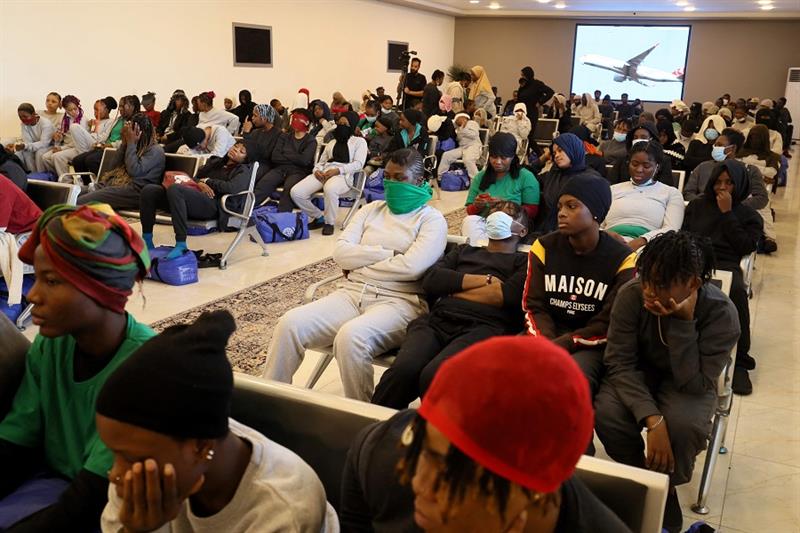Libya repatriates 369 Nigerian and Mali migrants
An official told AFP that Libya returned 369 irregular migrants to their home nations of Nigeria and Mali on Tuesday, including more than 100 women and children.
According to Mohammed Baredaa, head of the Libyan interior ministry’s department entrusted with curbing irregular migration, two repatriation aircraft transported 204 Nigerians and 165 Malians.
Baredaa reported that the Nigerian illegal migrants included nine newborns, 18 juveniles, and 108 women.
He stated that the flights were carried out “in coordination with the International Organization for Migration (IOM)”.
The UN agency’s “voluntary humanitarian return programme” gives free return flights to migrants and assists them in reintegrating into their home nations.
But on Tuesday, a few migrants claimed to AFP that they were being deported against their will.
According to Hakim, 59, a Nigerian who has resided in Libya for 25 years but who refuses to provide his last name, Libyan authorities “came at night and broke down the door.”
Before holding him and his spouse until they could be repatriated, he claimed they had taken his passport.
Following the long-term ruler Moamer Kadhafi’s overthrow in 2011 with NATO support, Libya is still attempting to recover from years of conflict and instability.
Smugglers and human traffickers have taken advantage of the country’s ongoing turmoil.
Libya has faced criticism for its handling of migrants and refugees, with rights groups accusing the country of everything from extortion to enslavement.
It is located around 300 kilometers (186 miles) from Italy and serves as a major departure point for migrants, particularly from Sub-Saharan African nations, who face risky Mediterranean Sea crossings in search of better opportunities in Europe.
However, as Libya and the EU work to reduce illegal migration, many people have become stranded in Libya.
Earlier this month, Libyan authorities claimed that up to four out of every five foreigners in the North African country had proper documentation.
“It’s time to resolve this problem,” Interior Minister Imad Trabelsi stated at the time, adding that Libya had transformed from a “transit country to a country of settlement,” which he found “unacceptable.”
AFP


